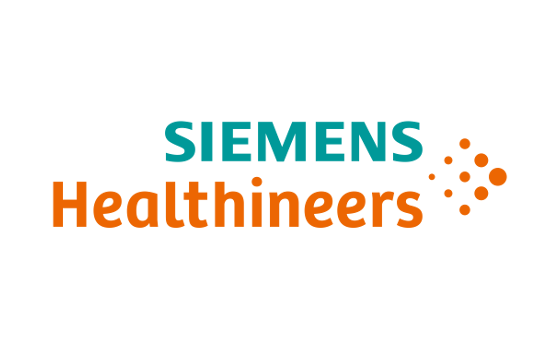 At the Congress of the Radiological Society of North America (RSNA 2018) in Chicago, USA, Siemens Healthineers is presenting AI-Pathway Companion* for the first time. It is a clinical decision support system based on artificial intelligence that supports physicians in making diagnostic and therapeutic decisions along the clinical pathway. While numerous applications in the healthcare market make the workflows of individual clinical or administrative departments more efficient, the AI-Pathway Companion is designed to help optimize the processes along the clinical pathways and thus the overall success of patient management. The AI-Pathway Companion provides physicians in multi-disciplinary disease boards with the clinical status of each patient, based on data integration and artificial intelligence, and makes suggestions for next steps. The first clinical application will apply to prostate cancer.
At the Congress of the Radiological Society of North America (RSNA 2018) in Chicago, USA, Siemens Healthineers is presenting AI-Pathway Companion* for the first time. It is a clinical decision support system based on artificial intelligence that supports physicians in making diagnostic and therapeutic decisions along the clinical pathway. While numerous applications in the healthcare market make the workflows of individual clinical or administrative departments more efficient, the AI-Pathway Companion is designed to help optimize the processes along the clinical pathways and thus the overall success of patient management. The AI-Pathway Companion provides physicians in multi-disciplinary disease boards with the clinical status of each patient, based on data integration and artificial intelligence, and makes suggestions for next steps. The first clinical application will apply to prostate cancer.
"At RSNA 2018 Siemens Healthineers has announced two powerful AI-based systems: AI-Rad Companion and AI-Pathway companion. This once again is demonstrating our aspiration, as a leading company in digitalization and artificial intelligence, to support healthcare providers in their transformation to value-based healthcare. With AI-Pathway Companion, Siemens Healthineers is presenting a next-gen clinical decision support system that helps physicians to standardize and accelerate clinical decisions through artificial intelligence," says Yan Beynon, head of Digital Services at Siemens Healthineers.
The ever-increasing quantity of medical patient data could actually lead to more personalized and efficient diagnostics and therapy, in other words to precision medicine. However, health data from clinical examinations, laboratory results, genetics and imaging, for example, are still kept in isolated silos. This lack of data integration leads to waste and errors in clinical procedures, and overutilization. Insufficient patient care and budget overruns can result.(1)
The AI-Pathway Companion is an intelligent digital solution that works on the basis of powerful data integration and AI-technologies to recognize patterns and regularities in data. For each patient case, it aggregates the patient history, the results from imaging, laboratory, pathology and genetics as well as clinical studies, and evaluates the data. Using this as the basis, the system provides the patient's status in the clinical pathway, taking clinical guidelines into account, and suggests the next steps.
AI-Pathway Companion's user interface is designed to be intuitive, enabling physicians to discuss the results with their patients and make joint decisions about how to proceed.
For radiology, AI-Pathway Companion aims to strengthen the role of imaging in a patient’s clinical pathway and the role of radiologists as partners of clinicians in integrated decision-making. The reason: To enable precision medicine in the form of precise diagnosis and optimal therapy selection, imaging results often play a key role in clinical decisions. The AI-Pathway Companion integrates the multi-disciplinary experts, like for example diagnosticians and clinicians, for joint objective patient management decisions, and makes the contribution of each diagnostic test to the overall patient treatment pathway clearly recognizable.
Thanks to the transparency of key performance indicators (KPIs) for patient management across the clinical pathway, contributing service lines such as radiology can show the value that imaging brings to the overall patient management decisions and clinical pathways - such as faster time to diagnosis and treatment decisions, consistent adherence to clinical treatment pathways, and the long-term success of the treatment.
AI-Pathway Companion is being developed in cooperation with leading physicians and institutions in Germany, the Netherlands, Switzerland, the U.K., and the USA.
About Siemens Healthineers
Siemens Healthineers enables healthcare providers worldwide to increase value by empowering them on their journey towards expanding precision medicine, transforming care delivery, improving patient experience and digitalizing healthcare. A leader in medical technology, Siemens Healthineers is constantly innovating its portfolio of products and services in its core areas of diagnostic and therapeutic imaging and in laboratory diagnostics and molecular medicine. Siemens Healthineers is also actively developing its digital health services and enterprise services. In fiscal 2018, which ended on September 30, 2018, Siemens Healthineers generated revenue of €13.4 billion and adjusted profit of €2.3 billion and has about 50,000 employees worldwide.
* AI-Pathway Companion is currently under development. It is not for sale in the U.S. Its future availability cannot be guaranteed.
1. Smith M, Saunders R, Stuckhardt L, et al. (editors) Best Care at Lower Cost: The Path to Continuously Learning Health Care in America. National Academies Press (U.S.); 2013 May 10 (accessed November 20, 2018)